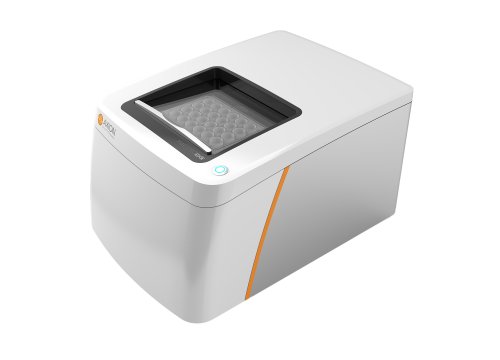Authors: Chong Gao, Qinghua Shi, Xue Pan, Jiajia Chen, Yuhong Zhang, Jiali Lang, Shan Wen, Xiaodong Liu, Tian-Lin Cheng, and Kai Lei
Cell Reports, March 01, 2024
Scientists use Axion’s noninvasive Maestro MEA system to assess functionality in neuromuscular organoids in vitro.
Biologically relevant cell models of amyotrophic lateral sclerosis (ALS) are essential for advancing therapeutic development. In this study, scientists developed ALS patient-derived neuromuscular organoids (NMO) to model the spinal neuromuscular phenotypes of ALS carrying the C9orf72-HRE mutation. To explore neural activity in the organoids and assess ALS-associated dysfunction in vitro, the researchers used Axion’s noninvasive Maestro microelectrode array (MEA) platform. The MEA results indicated that ALS NMOs showed denervated neuromuscular junctions and reduced contractile frequency. Overall, the authors found that “NMOs from C9orf72 iPSCs manifested the peripheral symptoms of ALS in SKM [skeletal muscle] and the pathological hallmarks in neurons and astrocytes of the spinal cord,” and used the model to evaluate the impact of G6414 in the spinal neuromuscular system.


